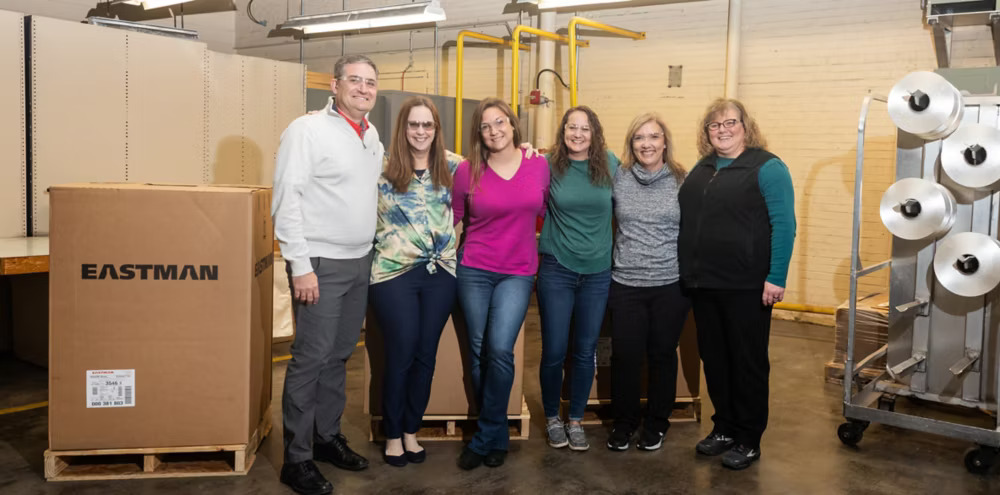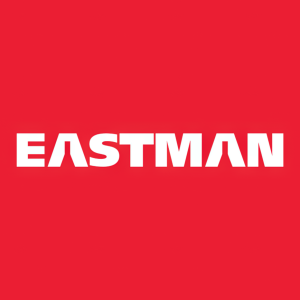Naia(TM) Prepares First Production of GRS-Certified Yarn
NORTHAMPTON, MA / ACCESSWIRE / April 4, 2024 / Eastman:
In a significant achievement for Eastman, Naia™ Renew cellulosic fiber has received the Global Recycled Standard (GRS) certification. This certification validates Naia™ Renew's certified recycled content, chain of custody, social and environmental practices, and chemical restrictions. The Naia™ team is excited to announce the first production of GRS-certified yarn, which will soon be on its way to a sustainable brand that shares the Naia™ vision of making sustainable textiles accessible to everyone.
"This first production represents years of work by our team," said Jason Keller, product manager for Naia™. "Our customers have been asking when we'd have GRS certification, and we've worked tirelessly to make Naia™ Renew certified. We're so proud to offer not just a sustainable product but a certification of the fiber that establishes trust with our collaborating brands."
The importance of GRS certification
The GRS certification process, owned by Textile Exchange, plays a vital role in driving sustainable change in the fashion and textiles industry. It involves an audit of the entire supply chain conducted by independent, third-party certifying body SCS Global Services. GRS certification enhances traceability, promotes environmental principles, ensures social requirements are met, and regulates chemical content and labeling. Eastman's achievement of GRS certification for Naia™ Renew reinforces the company's commitment to sustainability and builds trust with customers and collaborators.
Expanding the scope of GRS certification
In June 2023, Textile Exchange made a significant announcement regarding its Alternative Volume Reconciliation (VR2) policy. A policy update broadened the range of chemical recycling technologies eligible for mass balance, including gasification. Gasification is a process used in Eastman's carbon renewal technology, a molecular recycling technology that breaks waste down into molecular building blocks for use in new materials. By including gasification in the GRS certification, the textile industry now has a broader approach to making sustainable textiles.
"We championed the broadening of Textile Exchange's VR2 policy to include molecular recycling because this technology makes our sustainable fibers possible," said Lacey Johnson, Eastman manufacturing technologist. "At Eastman, we're constantly looking for ways to collaborate for innovation. Our work with Textile Exchange has brought a necessary, future-forward change to GRS certification."
The power of collaboration
Collaboration is key to Eastman's success. The company actively engages with global industry leaders and associations to shape the future of sustainable textiles. Eastman's collaboration with Textile Exchange and other stakeholders played a crucial role in educating the industry about the value and contribution of molecular recycling. The decision to expand the scope of VR2 to include gasification is a significant win for Naia™ and the future of textile sustainability.
But collaboration doesn't stop there. The true power lies in the adoption of certified materials by brands and retailers. When sustainable brands embrace certified fibers like Naia™ Renew, they send a powerful message to consumers: sustainability matters. By incorporating these materials into their product lines, brands not only contribute to a greener future but also inspire others to follow suit.
Addressing the challenge of textile waste
The textiles industry has been increasingly focused on circular materials as a solution to combat waste pollution, particularly textile waste. Eastman's molecular recycling complements mechanical recycling and offers a solution for hard-to-recycle waste materials, including textiles affected by factors like fiber blends, chemicals and additives. Naia™ Renew, produced from
With Naia™ Renew, we pave the way for a more sustainable future for fashion and textiles.

View additional multimedia and more ESG storytelling from Eastman on 3blmedia.com.
Contact Info:
Spokesperson: Eastman
Website: https://www.3blmedia.com/profiles/eastman
Email: info@3blmedia.com
SOURCE: Eastman
View the original press release on accesswire.com








